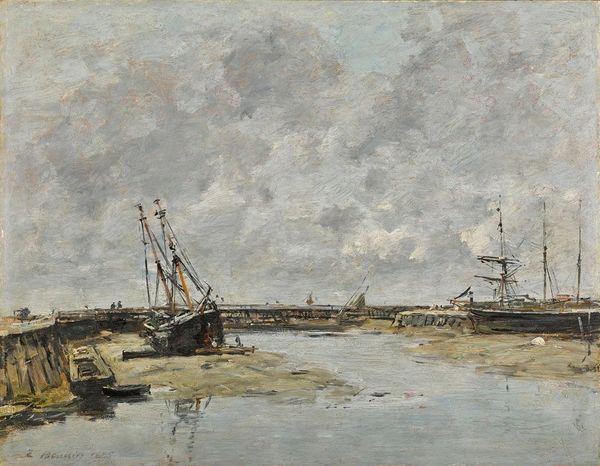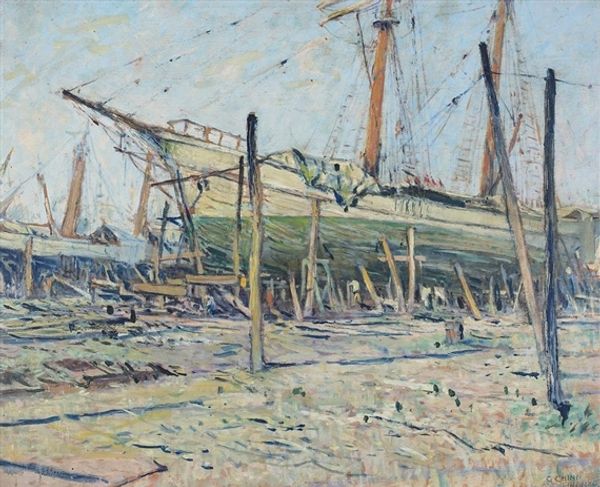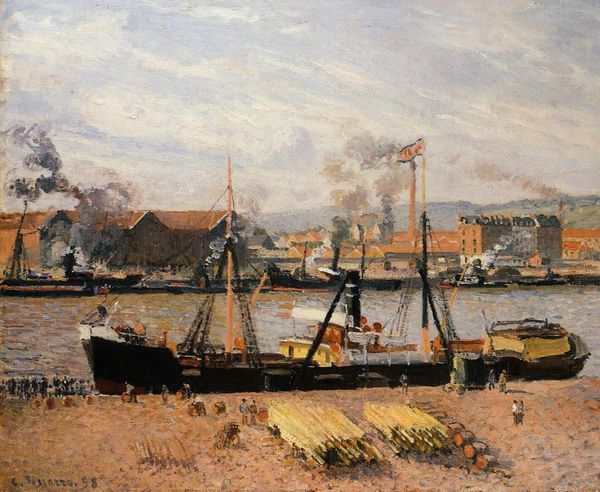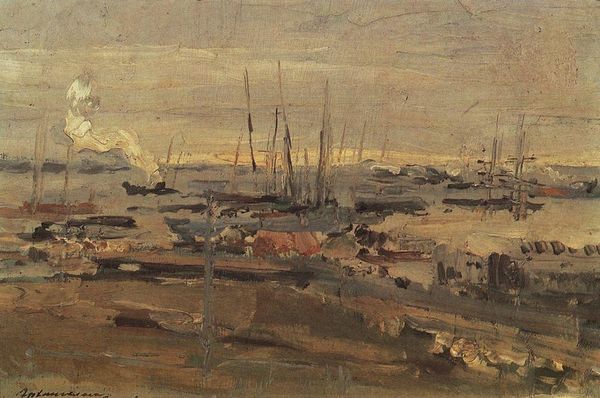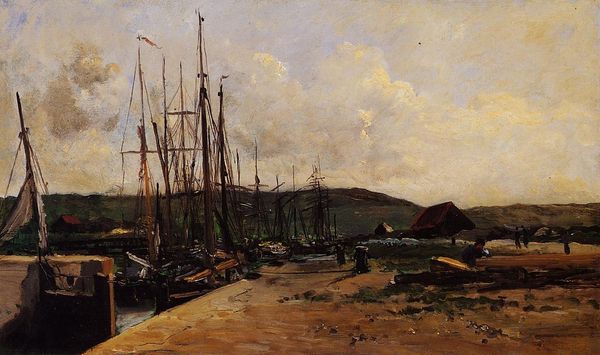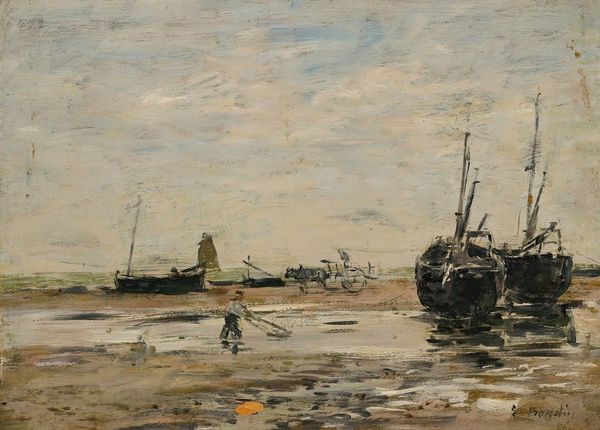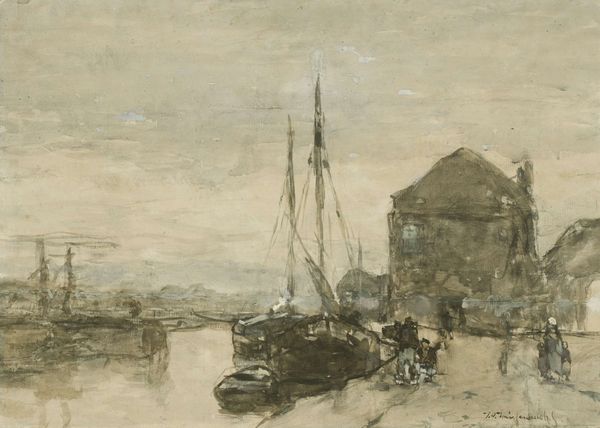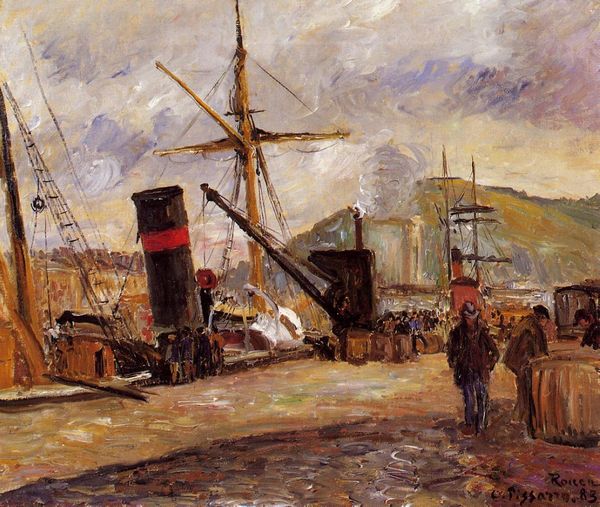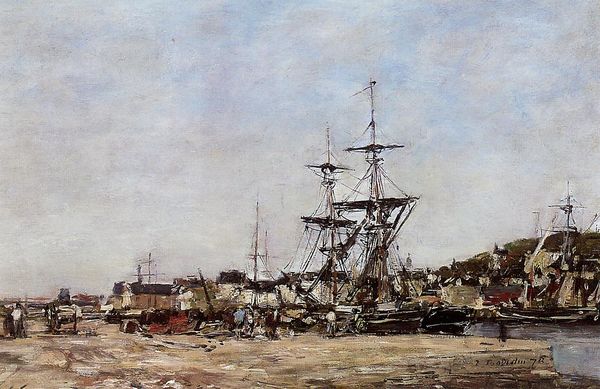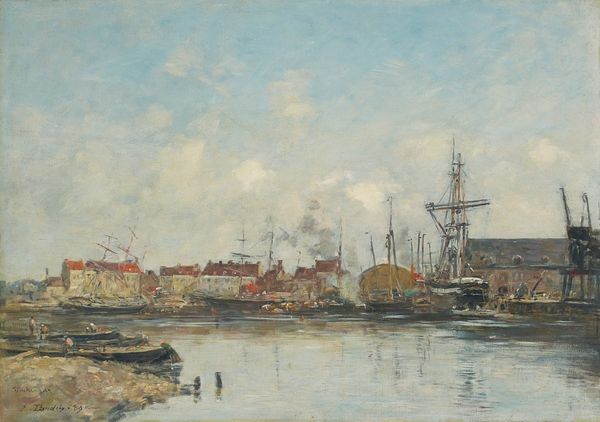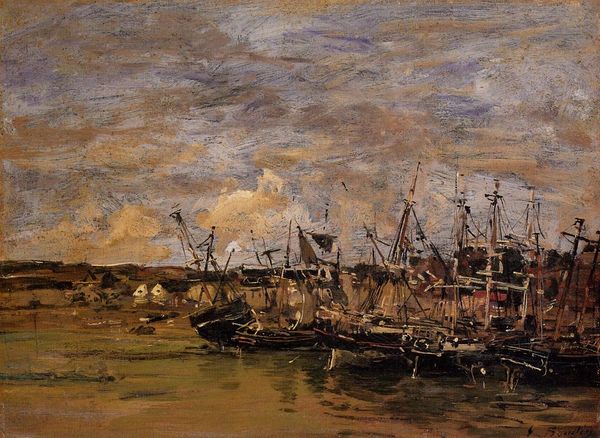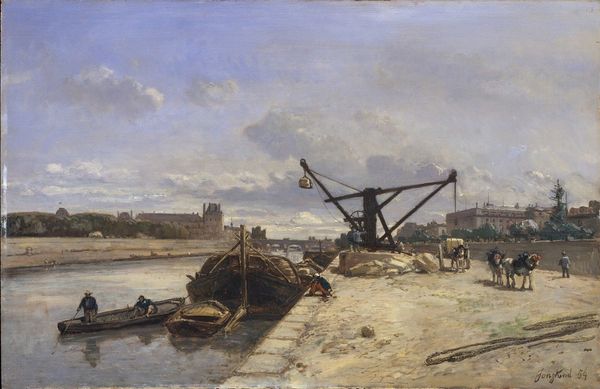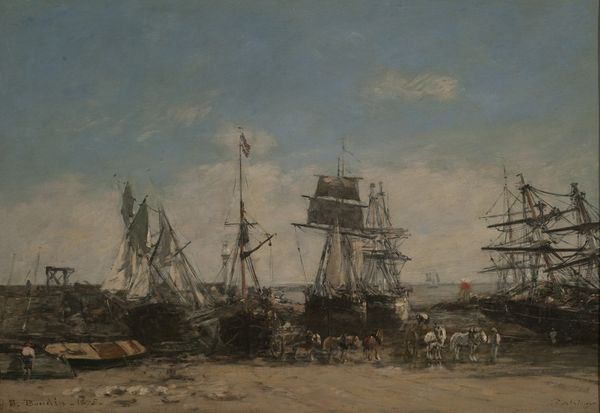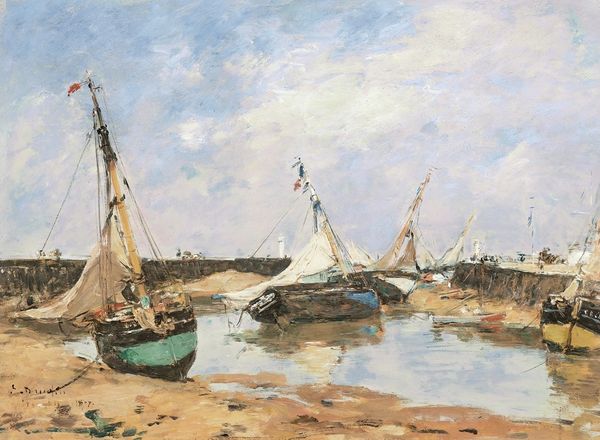
plein-air, oil-paint
#
impressionism
#
plein-air
#
oil-paint
#
landscape
#
oil painting
#
cityscape
#
genre-painting
Copyright: Public Domain: Artvee
Curator: This oil on canvas, simply titled *The Trawlers*, was painted by Eugène Boudin in 1885. Editor: The moment I see it, I think of industrial melancholy. The grey tones, the bare masts, the hint of steam—it all speaks of the gritty reality of work, of a port holding its breath. Curator: That grey tonality is key. Boudin was master of painting the transient effects of light and atmosphere, capturing a sense of place with remarkable sensitivity. Look at the muted colors—grey sky mirroring the grey water. This palette choice is hardly accidental. What psychological impact could that have had? Editor: It does seem deliberate. It reminds me of the rise of industrial capitalism and how the ports of France were changing—becoming crucial engines for economic growth but also sites of potential exploitation and struggle. Boudin’s composition here shows figures that look as if they are laboring, in that cultural context. Curator: The figures certainly seem diminished, engulfed by the industry around them. This evokes ideas around man’s relationship to his environment. This imagery echoes a larger narrative about industrial change that played out across Europe at that time, and it mirrors a broader sense of anxiety concerning technological advancement. Editor: It is such an understated statement for all the activity that we can imagine must occur in such a port. I find it interesting, too, how these Impressionists started dealing with industrial settings. In terms of art history, landscape moved into a space alongside traditional figurative themes. I am curious how he captures what would have been deemed a subject worthy of aesthetic consideration. Curator: Well, in the context of impressionism's drive to paint 'modern life' then this harbors a radical claim—it is making the implicit argument that modern labor, industrialism itself, holds a mirror to human feeling, and is, as such, aesthetically, politically, and culturally relevant. Editor: So much is loaded in such subtle painting technique. Thanks for that! Curator: Likewise. Considering all these contexts makes it seem much more important and reveals many other connections.
Comments
No comments
Be the first to comment and join the conversation on the ultimate creative platform.
